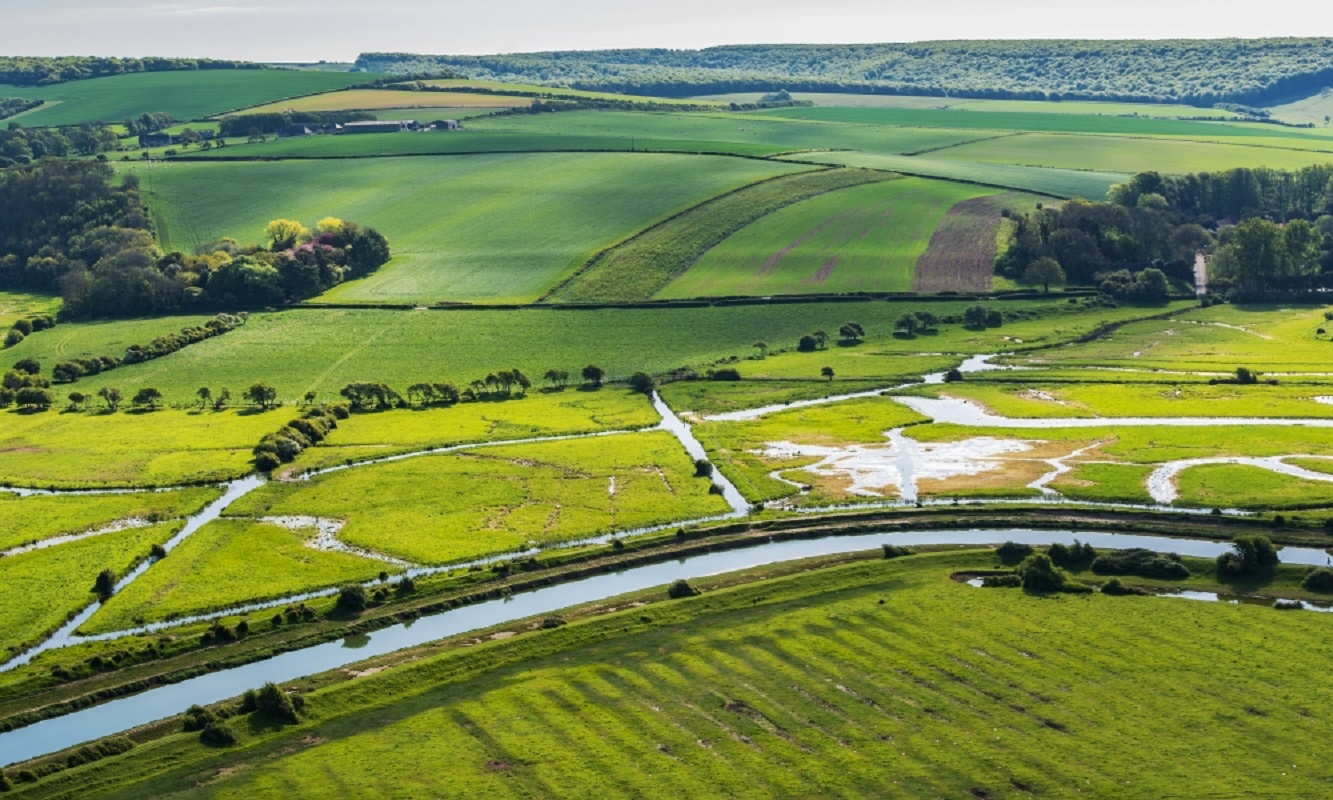The Agile Initiative releases survey aimed at understanding how to scale up NbS in the UK

Nature-based Solutions (NbS) involve diverse ways to work with nature to address societal challenges, providing benefits for climate, biodiversity and human wellbeing. NbS include protecting existing ecosystems like forests and wetlands, sustainable land management practices like regenerative farming, sustainable forestry, and organic farming, and managing green space in cities. The term also refers to restoring and creating new ecosystems through rewilding, creating green roofs and living walls, and planting community gardens.
There are so many organisations working on protecting and restoring nature for its benefits to human wellbeing, biodiversity, and the climate in the UK. However, we know that they can face multiple challenges both in starting up and in managing existing projects for the long term.
If you or your organisation works on a project like this, the Agile Initiative wants to hear from you. Researchers have launched a survey to explore practitioners’ perspectives on a range of issues including policy and finance support, land use rights and conflicts, community and stakeholder engagement, and the trade-offs among multiple socioeconomic, climate, and ecological objectives. This survey will support wider research on Scaling-up Nature-based Solutions in the UK that ultimately aims to produce knowledge and guidance for practitioners, a toolkit, and policy recommendations.
How can I help?
The researchers are inviting one person from each organisation involved in the strategy for and/or delivery of NbS to complete a survey. This is inclusive of organisations across the public, private, and third sectors including local government, charities, land managers and landowners, private sector companies, and community-led initiatives.
You can access and share the survey with this link: bit.ly/scaling-up-NbS
Participants have the chance to win one of twenty £50 book vouchers. There is also the chance to have your NbS projects featured on the Nature-based Solutions Initiative (NbSI) case study platform, which showcases best practice examples of NbS around the globe. By completing this survey, you will help support our research to produce guidance and support for nature-based solutions projects to deliver multiple benefits for people and nature.
Does my project count?
You don’t need to be a scientist or have any technical knowledge to help us with this survey. People use a range of terms to describe projects that fall under the category of Nature-based Solutions, including conservation, nature recovery, sustainable food production, natural flood management etc. Agile Initiative researchers are keen to be open and inclusive and invite any organisation working on protecting, restoring and using nature for multiple benefits for biodiversity and society to participate.
What does an NbS project look like in the uk
Varied examples of NbS in the UK include:
- Hogacre Common, Oxford, England – Hogacre Common is a fourteen-acre site less than a mile from the centre of Oxford, to the south-west of the City and within its fertile flood plains. Bounded by streams on three sides and only accessible by foot, it features field, woodland and aquatic habitats and hosts low carbon community activities and events. Formerly the sports ground for Corpus Christi college, it has been leased to the community since 2011 for a jar of honey a year!
- Wild Kidlington – Wild Kidlington is a project hosted by WILD Oxfordshire which works with the local community to enable residents to improve spaces for wildlife while highlighting to local people the impact that nature-based interventions can have on their lives and well-being. This includes wildlife themed walks and talks, creating hedgehog highways, and improving local green spaces for wildlife.
- Trees for Life, Dundreggan Rewilding Centre, Scotland – Trees for Life has a mission to rewild the Scottish Highlands by enabling the restoration of the Caledonian Forest through the active involvement of people, providing space for both wildlife and communities to thrive. Dundreggan is a rewilded estate which has recovered centuries of damage caused by sheep, goats, and deer grazing. By allowing the forest to regenerate naturally, Trees for Life have expanded important fragments of Scotland’s Caledonian forest, providing a habitat for over 4,000 species of plants and animals including golden eagles and black grouse.
- North Harris Trust, Western Isles, Scotland – One of the largest community owned estates in Scotland, with core objectives of building a stronger community while enhancing the area’s exceptional cultural and natural heritage and biodiversity.
- Bunloit Estate, Highlands Rewilding, Scotland – based on the west shores of Loch Ness in Inverness-shire. The site contains a mosaic of habitats from native woodland to peatland, pastures to plantations. Since the start of the project, the Bunloit estate has been the subject of a twelve-month consultation with conservation groups, scientists, expert ecologists, government and the local community.
- Natural Grid and Community Forest, Plymouth, England – working with nature and people to combat climate change, enhancing wildlife (biodiversity) across Plymouth, engaging local communities and delivering skills, training and learning opportunities for young people, through Kickstart apprenticeships and short-term accredited learning programmes.
- The Carbon Community, Bannau Brycheiniog, Wales – A new reforestation approach, rooted in science, to increase carbon sequestration in trees and soil, the Carbon Community are creating the new Glandwr Forest over 170 acres on the edge of Bannau Brycheniog to capture carbon and create a place of beauty for future generations.

